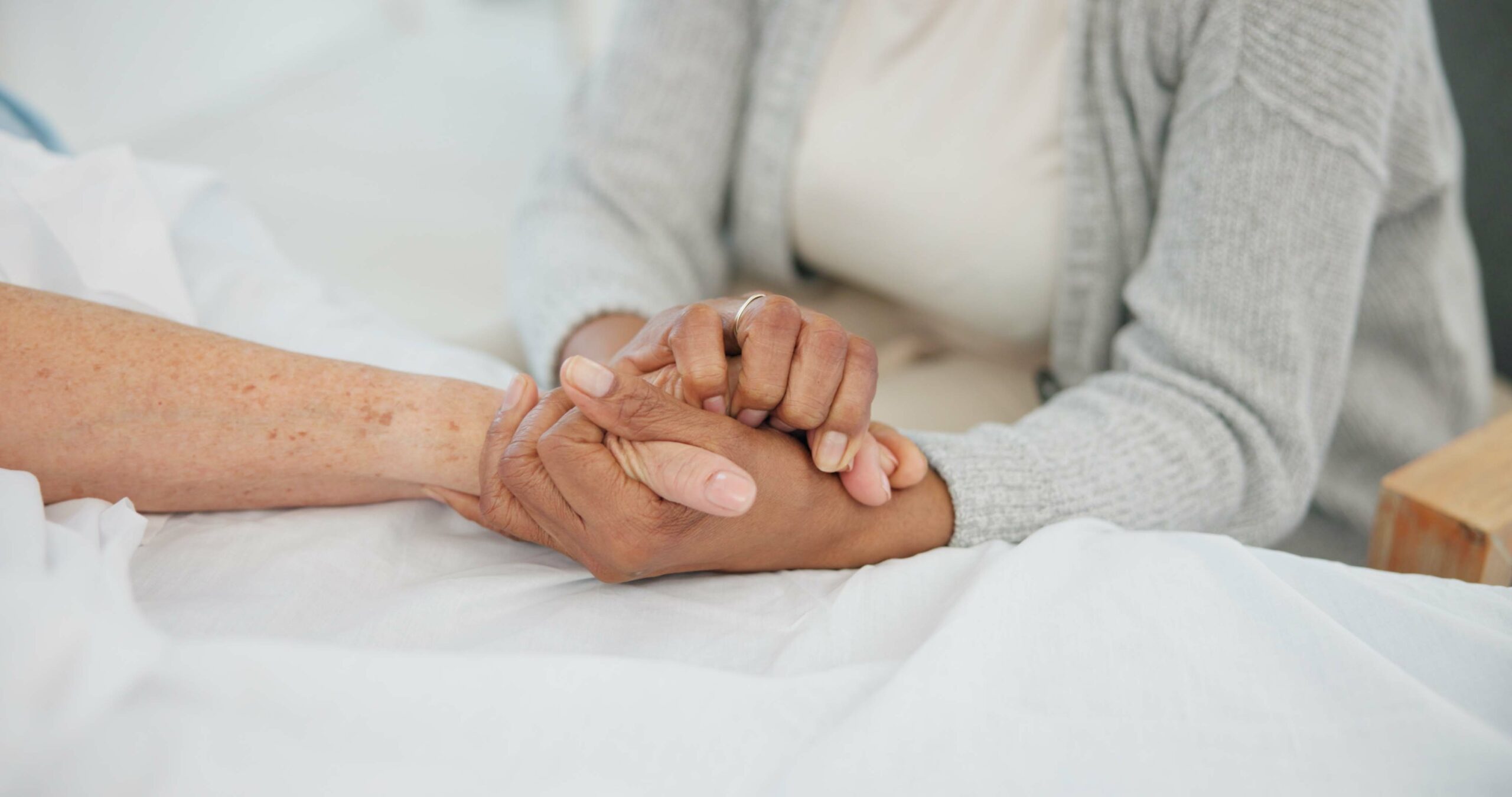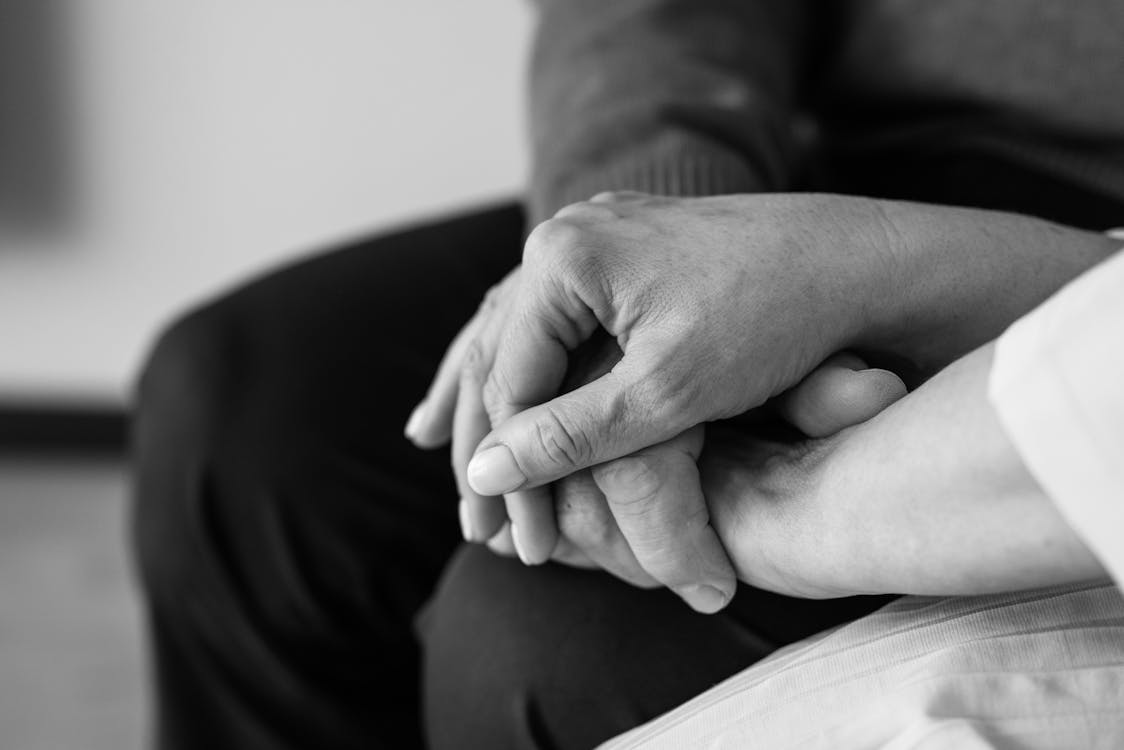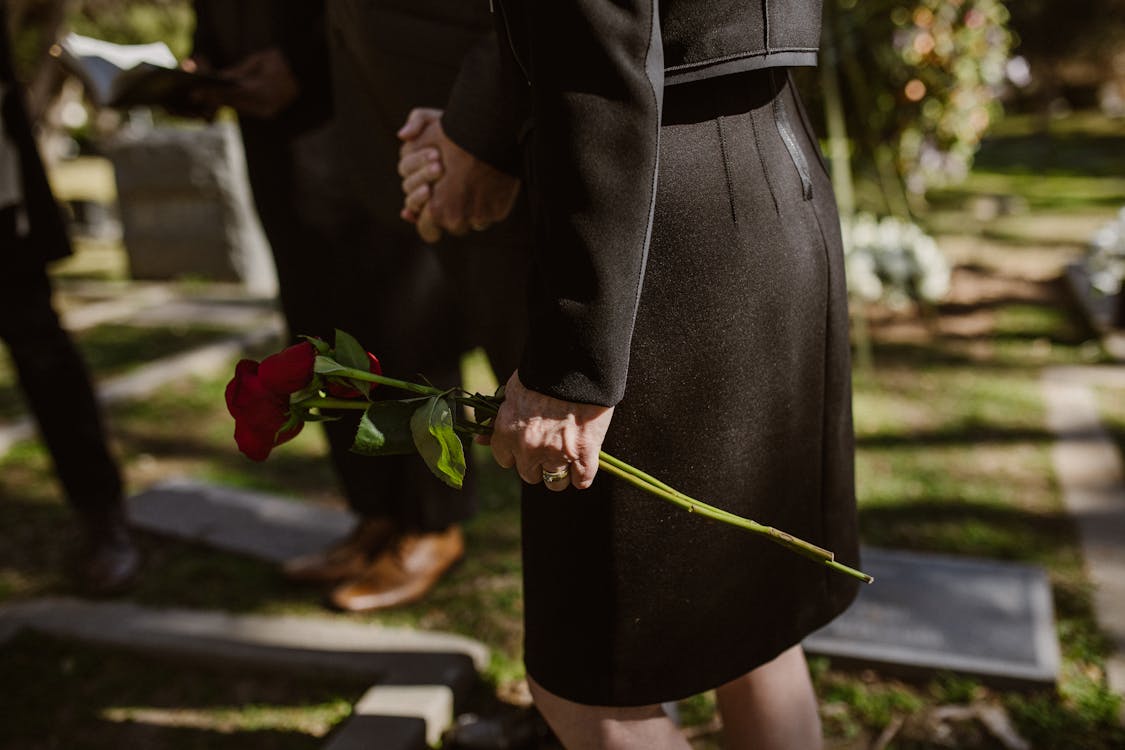
Watching a loved one die is one of the most heart-wrenching experiences anyone can face. It challenges us in ways we often aren’t prepared for. You may have vivid memories of this person full of vitality, laughter, and strength. But now, those memories can feel clouded by the reality of their illness or a sudden, tragic event. The emotions that arise during this time are often overwhelming, and it’s natural to feel a mix of sadness, anger, confusion, and even guilt.
As you sit by their side, you might find yourself grappling with an intense desire to be there for them during their final days, while also struggling with the harsh sight of their decline. The contradiction of wanting to help but feeling helpless can weigh heavily on your heart. And if you’ve chosen hospice or palliative care, it means acknowledging that the end is near—a realization that’s often harder to accept than the death itself.
How to Handle Watching a Loved One Die
No one ever truly prepares for the gut-wrenching experience of watching someone they love slip away. Despite any emotional preparation, the pain of seeing them fade is still overwhelming. It’s okay to feel lost, to feel like you need support, and to seek ways to cope with such a difficult time. The journey through this experience is different for everyone, but there are ways to find comfort and navigate the challenges. Here, we explore some of those emotional and practical steps to help you through this inevitable part of life.
1. Cherish the Time You Have Left
When you don’t know what to say, sometimes the best thing is to simply sit in silence with them. No words, just presence. This time—these final days—are just as painful for them as they are for you, and sitting together can become its own form of communication. There’s something deeply meaningful about just being there, even when there’s nothing left to say.
Think of this as a gift, however bittersweet it may feel. Take this opportunity to share what’s on your heart: tell them how much they’ve meant to you, how they’ve shaped your life, and how much you’ll miss them. This is your moment to say the things that are hard to say, to find some closure in the shared space between you. And while it’s impossible to prepare for the pain of their absence, this final conversation can be a way to honor their life and the impact they’ve had on yours. Many people would give anything for one last moment with someone they lost unexpectedly. Don’t let this moment slip by.
2. Embrace the Lessons in Loss
Death doesn’t just teach you about loss—it teaches you about life, too. The pain and sorrow that come with it are undeniable, but there’s something else in those moments, something deep and profound. You’ll see how it affects not just the person passing, but also those of us left behind—struggling to stay strong, trying to hold it all together.
While you may not be prepared for or even want to witness the decline of your loved one, being present during their final days can offer unexpected lessons. Sit with them, listen carefully, and ask the questions that matter. These moments can give you insights into the emotional and physical journey of death, and often, you’ll find wisdom in the most unexpected places. Sometimes, the most profound lessons in life come from sitting with the reality of death.
3. Give Yourself Time to Process
Grief doesn’t just hit after your loved one has passed—it starts long before that, as you both face the reality of what’s coming. Watching someone you love die is a slow, emotional unraveling, and it’s important to understand that you’ll need time to process all of it. There’s no quick fix, no fast-forward button. You’re in this for the long haul.
Even the strongest among us can feel the weight of emotional pain when we lose someone close. And here’s the truth: it’s okay not to be okay. Don’t rush through the healing process. Whether it’s a few days, weeks, or longer, take the time you need to come to terms with everything you’ve just experienced. It’s all part of finding peace. Healing isn’t linear, and it’s alright to feel the full range of emotions that come with this kind of loss.
4. Find Peace in the Moment
 Image source: Pexels
Image source: Pexels
When you know the end is near, there’s this pressure to make every word count. But here’s the thing—you don’t have to have it all figured out. It’s not about finding the “perfect” thing to say. Just be there. Start each visit with simple, everyday conversation—talk about your day, share a memory, or even talk about something as small as what you had for lunch. These little things can be a huge relief from the constant focus on illness.
For your loved one, it’s a welcome escape from the medical routines and the heaviness of it all. And for you, it’s a chance to let go of some of the weight you’re carrying. If there are things left unsaid or any tension between you, now’s the time to address it. This time together, however brief, can bring a sense of peace and closure that you’ll both need to move forward.
5. Recognize When the End is Near
As the end draws closer, words can feel impossible to find—sometimes, you won’t know what to say, and neither will they. You might just sit in silence, waiting for that inevitable moment to arrive, side by side. And in that silence, there’s a kind of intimacy, a shared understanding that needs no explanation.
This is also a time when you might learn something new about comfort. It’s not about fixing anything or making it easier—it’s about being present, offering your support in whatever form it takes. The final moments of lucidity for someone nearing death can be incredibly profound, often serving as their last chance to say goodbye. Those moments may not be filled with grand speeches, but they can be deeply meaningful, even in their quietness. Recognize them for what they are—a final exchange of love, of peace, and of closure.
How to Take Care of Yourself After Watching a Loved One Die
After your loved one’s passing, it’s natural to wonder, “What now?” How do you move forward, heal, or even begin to recover from such a deep loss? The truth is, the healing process doesn’t start after they die. It began long before—maybe the moment you first learned they were sick, or even earlier, when you realized time was catching up to them.
What you might not realize is that the grief you’re feeling now—the sorrow, the pain, the heaviness—didn’t start with their death. It’s called anticipatory grief, and it’s a kind of grief that begins long before you actually experience the loss. It’s that constant, gnawing fear that you’re going to lose someone you love. So, when the death finally happens, it feels like a release of all the grief you’ve been holding in.
But now, after the loss, the journey toward healing is still ongoing. It’s not something that happens overnight, and it’s okay to take your time. Here are a few ways you can care for yourself as you navigate the painful road ahead, giving yourself permission to grieve and to heal at your own pace.
6. Have a Plan
When your loved one passes, it feels like everything hits at once. There’s this rush of things that need to be done—paperwork, arrangements, phone calls—things that can make you feel like you’re detached from everything, including your own grief. It’s easy to get buried under a mountain of tasks, and before you know it, you’re so busy taking care of everything else that you forget to take care of yourself.
That’s why having a plan is so important. It’s not about shutting out your emotions, but about giving yourself a little structure in the chaos. Write down what needs to be done and what order it should be in. But don’t just focus on the tasks. Make sure you carve out time to rest, recharge, and let your emotions breathe. You can’t be there for everything if you’re running on empty. Take care of yourself first, even if it’s just a few quiet moments, before diving into the whirlwind of responsibilities.
7. Forgive Yourself
 Image source: Pexels
Image source: Pexels
In the immediate aftermath of losing someone you love, it’s common to feel like you didn’t do enough. Maybe you feel guilty for not being able to prolong their life or make them more comfortable in their final days. It’s easy to get lost in thoughts of what you could have done differently, wishing you could go back and change things. But here’s the truth: you did the best you could with what you had.
Take a moment to give yourself a break. Step away from all the responsibilities for a second and just breathe. It’s okay to not have been perfect. The guilt and self-blame you might be feeling are normal parts of grief. Many people who care for a dying loved one go through this. What you need to do now is forgive yourself for any perceived mistakes, whether big or small. You were doing your best in an incredibly hard situation, and it’s okay to let go of that guilt. Take the time you need to heal—both emotionally and mentally.
8. Let Yourself Feel It All
After your loved one passes, it’s tempting to push your feelings down and pretend everything’s okay. But here’s the thing: that’s not a healthy way to grieve. Ignoring your emotions or bottling them up can actually make things harder in the long run. You might end up dealing with more complicated forms of grief, like feeling emotionally overwhelmed or disconnected.
Instead, allow yourself to feel everything. It’s normal to have a mix of emotions—anger, sadness, confusion, even relief. Take the time to sit with those feelings, to really experience them. Ask yourself why you feel the way you do and try to understand where each emotion is coming from. Grief isn’t linear, and there’s no “right” way to feel, but the more you face what’s going on inside, the healthier your healing process will be. It’s okay to cry, scream, or just sit in silence. What matters is that you’re letting yourself feel.
9. Prioritize Your Own Well-being
After losing a loved one, it’s not uncommon to feel a strange sense of relief, especially if you were the one providing care in their final days. While this feeling might stir up guilt, it’s important to know that it’s a normal part of the process. You’ve been through a lot, and feeling relief doesn’t make you any less of a person—it means you’ve been carrying a heavy emotional load.
But with that guilt can come the temptation to neglect your own health. It’s easy to feel like you don’t deserve self-care right now, but that’s exactly when you need it the most. Combat these feelings by making a simple list of essential self-care tasks—things like eating, resting, and basic hygiene—and prioritize them each day. Even small acts of caring for yourself will help you regain some balance and begin to heal, one step at a time.
10. Don’t Be Afraid to Ask for Help
 Image source: Pexels
Image source: Pexels
Losing someone you love is heavy. No amount of preparing for it can really prepare you for the weight of it. If you’ve been the one caring for them, handling everything at the end, the thought of asking for help might feel like you’re failing. I get it—it can feel like you should just push through. But the truth? You don’t have to do it all alone.
You might feel like a burden, like you’re asking too much from others when everyone is already hurting. But here’s the thing: people want to help. They might not know how, and sometimes they might not even know what you need, but they’re there. It doesn’t make you weak to ask for support—it makes you human. We all need someone sometimes.
So, take a breath. Be specific with what you need. It might be something as simple as help with the dishes or just having someone to talk to without feeling like you need to be “strong” the whole time. Let others in. You don’t have to pretend everything’s okay when it’s not. People care about you—they just need to know how to show it. And when you let them, you might find it a little easier to move through the tough days ahead.
11. Take Some Time for Yourself
After your loved one passes, it’s completely okay to hit pause on everything. If you’ve been the primary caregiver, you’ve given a lot of yourself—physically and emotionally. It’s exhausting, and you might feel like you just need a break, and guess what? That’s totally fine. It’s not selfish. It’s necessary.
Now’s the time to say “no” without feeling the need to explain yourself. If you get invitations to hang out or do something, it’s okay to decline. You don’t owe anyone an explanation. Be upfront with your friends and family. Let them know you need time to just breathe, to recover, to simply be. You don’t have to make everything about others right now—you’ve already given so much.
When you’re ready, you’ll reach out. But right now, focus on yourself. Give yourself permission to rest, regroup, and recharge. Taking time for you isn’t just okay—it’s part of healing. So, don’t feel bad for needing space. You can’t pour from an empty cup.
The Weight of Watching a Loved One Fade
Watching someone you love go through their final days is a pain like no other. The reality of it hits harder than words can describe. It’s not just the loss itself; it’s the slow, painful process leading up to it. Sometimes, you’ve known for a while that this moment was coming, but nothing really prepares you for actually living through it.
The moment your loved one takes their last breath is something you’ll carry with you forever. That image, that feeling—it doesn’t just fade away. It sticks. And it’s okay to acknowledge that it’s hard, even traumatic. You might feel like you’re left with this heavy weight, a deep sadness that you don’t know how to shake. The truth is, there’s no quick fix. It takes time, and it takes healing.
Getting the right support is crucial. Therapy, counseling, and just giving yourself permission to grieve properly will help you move forward in your own time. You don’t have to navigate this alone. It’s a long road, but there is a path through it—and with the right help, you can find your way.
Featured image source: Shutterstock
Loading...






